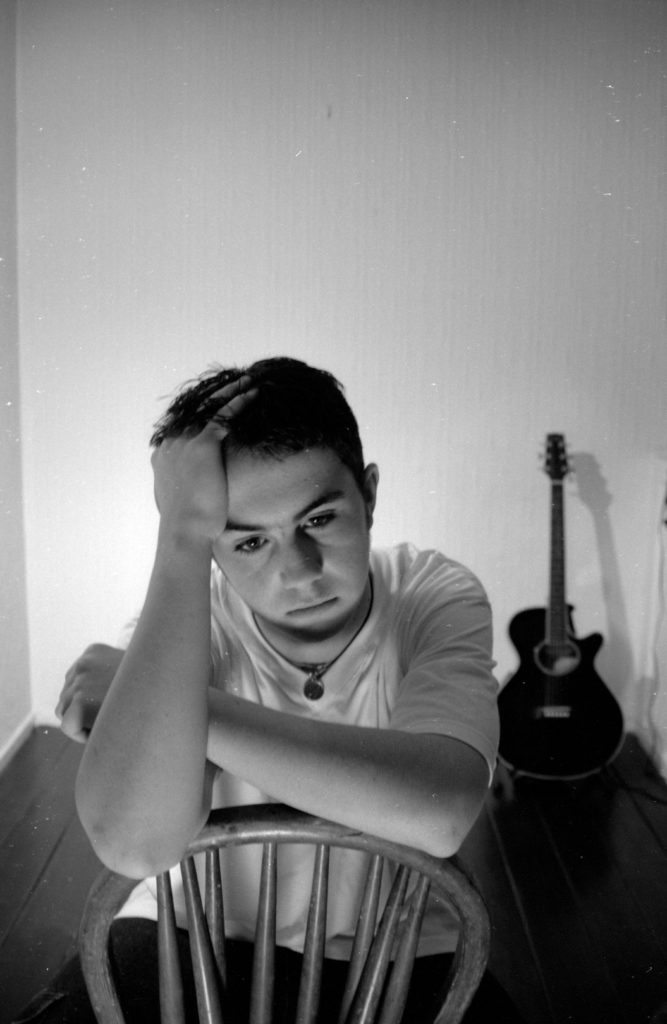The Truth That No One Tells Teenagers
1in6uk is honoured to present: Ten facts that every teen victim has a right to know. Script and audiobook by Matthew McVarish

Matthew spends much of his life in activism, encouraging governments to take action to end all forms of childhood sexual violence. He wrote this book about his journey, from victim to activist, called “The truth that no one tells teenagers”, a guide to navigating your own recovery, which he hope will reach the hands of every child and adult survivor who has yet to take back their lives after suffering abuse.
1in6uk is delighted and honoured to bring you this important piece of work.
This book was written for you.
You have found exactly what you need to know
right now
but
if listening and
this becomes too much, don’t worry.
Just put it down
and come back to it
when you know you’re ready.
You’re going to be okay.
Prologue
The truth will set you free, but first it will piss you off.
—Gloria Steinem
How do I know the truth?
My uncle ruined my childhood. Everyone thought he was such a nice guy,
but when we were alone he would do things to me that no one else knew about.
I never told anyone.
I believed it was better for everyone if I kept it to myself,
but when I became a teenager, I started to feel angry.
I felt completely alone.
Sometimes I was okay, really okay in moments,
and sometimes I felt nothing at all,
like I was numb.
Sometimes my thoughts went so fast I believed I would never feel happy again.
It was exhausting.
A few times I wanted to die.
Twenty years after the abuse, I finally spoke about it.
My uncle went to prison.
I’ve now worked all over the world, encouraging people to talk about the abuse they’ve suffered.
To help them begin to heal.
I received a letter from a child who had recently suffered abuse,
asking what had helped me recover.
As I wrote back, I realized I was telling this child all the things no one told me.
The truth I needed to know, back when I was thirteen, t
hat no one around me knew or was willing to tell me.
I had to search for years to find these answers for myself.
You have been through enough already;
you shouldn’t have to search for years like I did.
You’re about to learn the truth you need to know right now,
so you can take back control of the rest of your life.
Recovery is a direction, not a destination.
You’re either getting better or you’re not,
and getting back to a good place after what they did to you can take a while.
It’s so unfair, but if you think about it,
the sooner you start this healing the sooner you’ll be okay again.
So, let’s just get on with it.
Recovery happens in three phases:
Phase 1: Discovering the truth
Phase 2: Understanding the truth
Phase 3: Believing the truth
You’re nailing Phase 1 right now just by reading this book:
Well done, you!
Phase 2 might happen at the same time,
though some truths can be confusing.
Take as long as you need. Listen to this book as many times as you want.
The third and final phase is the simplest and the hardest.
It might take years.
I know, it’s so not fair, but there are ways to speed up this process
and the good news is you’re starting now.
You’re beginning your recovery long before I did.
Again, well done, you!
Think of how many people still don’t know the truth or even where to find it.
Some people who were abused during their childhood never heal,
so the person who ruined their childhood also ruined the rest of their lives.
That will not happen to you.
You’re taking control back, just by continuing to listen.
I am proud of you for opening this book.
Be brave and keep listening.
You’re going to be okay.
Remember to breathe
It’s simple. We can survive for three weeks without food,
for three days without water,
but for only three minutes without breathing.
It starts the moment we are born and stops the moment we die;
breathing is such an automatic process of our bodies that being reminded to do it might seem stupid.
The truth is, we all constantly forget to breathe.
Whenever we’re scared, excited, or just concentrating on something,
we accidentally hold our breath. I
t’s a natural reaction. We unconsciously tense up and stop breathing,
even if the stressful situation is just in our imagination –
like when we’re watching a scary film
or reading a good book.
We also forget to breathe when we remember something scary from our past
or worry about something possibly challenging in the future.
When I was training to become an actor, I was taught, “If in doubt, breathe out”
if we were acting on stage and couldn’t remember our next line.
Instead of panicking, we learned to simply breathe out.
It only takes a moment and is often all we need to make our mind shut up for a second.
Taking a nice deep breath is the quickest way to step back from whatever is in your head
and instantly relax,
like hitting your own personal reset button.
If you ever find yourself anxious, scared, or just focusing so hard on something
that you get a little lost:
breathe.
Throughout this book,
I’ll regularly remind you to stop and breathe.
There is nothing scary here, no graphic descriptions of abuse,
But I understand how reviewing memories from my journey,
From victim into recovery,
might cause you to recall similar memories of your own.
You are safe now.
You are reading this to make sense of what you have experienced
and to help yourself heal,
so be very gentle with yourself
and listen at your own pace.
I once flew to Norway to attend a retreat run by Mike Lew,
A world-leading specialist in recovering from sexual abuse in childhood.
Forty men from all over the world came together to talk about their difficult experiences
and help each other to heal.
As I nervously approached the large room full of guys just like me,
anxious about what we might discuss,
yet determined to take back control of our lives,
I noticed a sign on the door that simply said:
Remember to breathe


